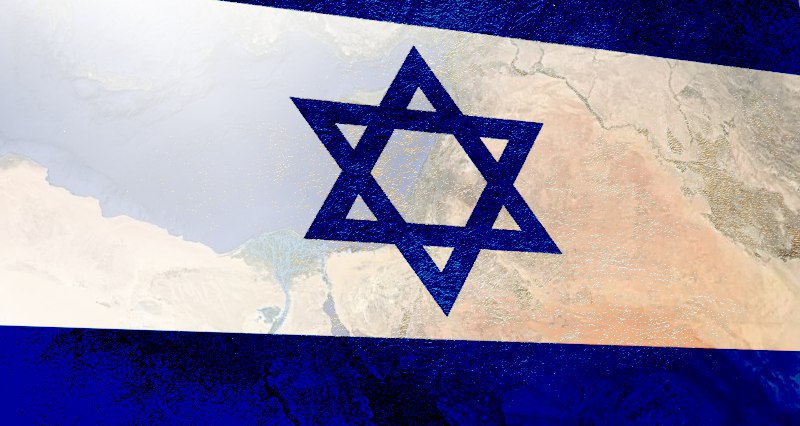On March 26, 1979, a peace treaty between Egypt and Israel was signed between President Anwar Sadat and Israeli Prime Minister Menachem began in the presence of US President Jimmy Carter.
In contrast to the faint creaking of the pens with which the treaty was signed, the sound of anger in the Arab world resembled cannon fire.
These pens opened a new era between Israel and Egypt, the largest Arab country that has been on the front lines with the Hebrew state since the announcement of its establishment in 1948.
It was inevitable for Egypt, which won the decisive October 1973 battle to regain the Sinai, which was later lost in the Six Day War in June 1967, to sign that treaty to impose its sovereignty over all of its national soil after it was exhausted by the four wars it fought against Israel.
Two opposing points of view
The defenders of the treaty believed that Sadat did not give Tel Aviv more than one paper guaranteeing the rights of his country, while Israel failed to achieve its goals of normalizing relations with the largest Arab country, as relations remained normal at the official level, but normalization with the Egyptian people remained a distant dream. Tel Aviv has been unable to achieve it for more than 40 years.
Of course, this is a fact. Any Egyptian who decides to normalize normalization in any way outside the government level will be outcast in light of the Egyptian society’s view of the issue as a breach of honor.
The Egyptian syndicates and civil organizations take strict decisions that reach to membership revocation for those who commit this crime, which is what happened before with the two great writers Ali Salem and Lotfi al-Khouli, many years ago.
The Egyptian media waged a harsh campaign against those involved in communicating with the Israelis outside government levels. The well-known Egyptian actor Mohammed Ramdan was the latest victim, as social media launched a fierce campaign against him after his attending a party with Israelis inside the UAE last month.
Even within the official level, the Egyptian parliament in 2016 dropped the membership of the well-known representative and journalist Tawfiq Okasha due to his reception of the Israeli ambassador, claiming that he placed the legislature in an embarrassing position before public opinion.
For 42 years, there have been many stories that reveal the extent of the Egyptian conscience’s rejection of the normalization process, even in a symbolic way, the last of which was the climbing of an Egyptian citizen during the events of the January 25 revolution to a 25-storey building to remove the Israeli flag raised on the Israeli embassy on the last floor.
On the other hand, those who rejected the peace treaty between Cairo and Tel Aviv believed that it took Egypt out of the equation of the Arab-Israeli conflict, and gave the Hebrew state the opportunity to expand and impose its plans and finish off the Palestinian issue.
Whatever the validity and claims of any party, Tel Aviv has only been able to conclude peace treaties throughout these decades with two Arab countries, namely Egypt and Jordan, two confrontational states.
What has changed?
There are many factors that can help us understand what happened, but not justify it.
For those who do not know, the defeat of the Arab forces formed from Egypt, Jordan, Iraq, Syria, Lebanon and Saudi Arabia, which participated in the 1948 war against the Zionist militias in Palestine, was the beginning of the collapse of the existing Arab regime at that time.
That defeat revealed the inability of the regimes to protect an Arab land against a group of armed gangs. In light of various internal causes, such as widespread corruption, turmoil and weakness in political life, and the inability to meet the most basic needs of the masses, military coups took place in more than one Arab country.
In the decade following that fateful war, new political regimes were formed on the ruins of their predecessors, and they tried as much as they could to change the political, social and economic structure as they promised. However, it did not fulfill the most important promise to the masses, the establishment of a healthy democratic life.
The new regimes found no justification for their disavowal of this promise except to deceive the masses that the existing authority, despite failure and suppression, is the only guarantor and a barrier to any Zionist expansion in the region. Despite this, Tel Aviv succeeded in occupying the territories of 5 Arab countries in June 1967.
These regimes tried to renew themselves in order to survive through a formal democracy based on procedural elections that can be easily rigged and control their outcomes, so that they cannot change or restrict the ruling elite.
This was the case for the republican regimes and some of the poor monarchies.
As for the rich monarchies, they succeeded through the wealth of oil in establishing a social contract that grants benefits and benefits to citizens in exchange for giving up any claims to participate in government or accountability.
However, all Arab countries used the Islamists to broadcast a religious discourse enshrining the reverence of the ruler and justifying his domestic and foreign policies.
Two contradictory religious discourses
However, the official religious discourse in countries that had normalized relations with Israel justified the old treaties of the Prophet Muhammad with the enemy, including the Jews. The Qur’anic verses that incite a tendency for peace were used to deceive the believers into accepting these agreements.
In light of the rotation of Egypt after the 1973 war from the eastern camp to the western camp, Cairo had to present its credentials. Sadat tried to confront the forces of the left and the communists, whom he considered his opponents, by removing the Muslim Brotherhood from prisons and encouraging a religious discourse that deals with the ruler with the logic of the Middle Ages. The strategy of using Islamists has been repeated in most Arab countries to grant the ruler immunity from any accountability and justify his policy according to religious perceptions.
In all cases, a political vacuum was formed in which only the forces of political Islam developed, which were gaining ground day after day, and their ambition for power was beyond doubt.
These Islamic forces presented a discourse different from official religious discourse.
Just as the Authority had used the conflict with Israel as a justification for survival, the Islamists used normalization agreements with the enemy as a religious crime sufficient to destroy the legitimacy of the existing political regimes.
Not only had that, but the forces of political Islam presented their credentials to the masses by courting the popular conscience that rejected normalization. In addition, in countries that did not implement normalization, those forces used to delude the masses of their readiness to liberate Palestine if they came to power.
These forces were gaining new ground in confronting authority in most Arab countries, especially in light of their failure to achieve any progress in achieving social, economic and political demands.
Over the past few decades, anti-Israel rhetoric has been popular with all political streams. Therefore, the authorities were walking a tightrope in the face of this discourse.
With the aging of the Arab regimes in dealing with the economic and social challenges of their societies and the inability to meet the aspirations of the citizens, the revolution erupted in several Arab countries to topple those regimes in 2011.
In the absence of organized political alternatives, the Islamists came to power, only for the masses to discover that their position on Israel was not at all different from the regimes that preceded them.
Gulf nightmares
The arrival of Islamic political forces into power in several Arab countries was a nightmare that raised alarm and danger bells in several Arab capitals, especially in the Gulf. The Gulf States sensed that their political systems were more fragile than they imagined, and that the persistence of emerging Islamic regimes in major countries such as Egypt could be a prelude to their demise.
During that fateful decade, the Gulf States watched how a terrorist organization like ISIS managed to control a vast territory equivalent to half the area of Iraq and one-third of the area of Syria, which made them tremble in fear.
At the same time, Iran took advantage of the chaos and uncertainty that struck Yemen and Syria to extend its influence further through its proxies, so that the Gulf States became surrounded and threatened virtually from all of their borders in Iraq, Syria, Lebanon and Yemen.
In light of all these existential threats surrounding the Gulf, the turbulent conditions in most Arab countries have prevented the existence of the minimum level of Arab cohesion that can ward off the combined dangers of Islamic terrorism, Iranian influence and greedy religious forces.
There were many factors that put pressure on the nerves of the political regimes in the Arab world in general and the Gulf in particular:
– Many foreign powers seeking to exploit the state of chaos in the region are scrambling to blackmail the existing regimes in order to obtain gains and concessions that would be unacceptable at normal times, especially as they threaten the borders, maps and demographic composition of the Arab world that we have known over the past century.
– The support of some foreign powers for Islamic forces under the pretext of revolution, freedom and democracy to redraw areas of influence in the Arab world in a way that threatens the interests of its peoples and states.
– The American reluctance to engage in a rough confrontation with the Iranians and their proxies to reassure the Gulf and its regimes.
Searching for a solution
Realizing the fragility of its legitimacy, Gulf capitals began to turn to search for a solution that would ensure the protection of their political systems and ward off the tricks of the greedy for their wealth.
For all those in fear, Israel was the solution in the face of the Iranian threat, including greedy foreign powers and the lurking forces of political Islam. However, they are ended up jumping from the frying pan into the fire
The Arabs of the Gulf found in Israel the only regional power that could share their plans in confronting Iran and the forces of political Islam that did not mind being the Achilles’ heel of foreign powers seeking to destroy the maps of Arab countries and steal the wealth of their people. They found in Tel Aviv 5 basic elements that encouraged them to do so:
- Common hostility to Iran, its proxies, and its nuclear ambitions.
- Shared concern about the rise to power of the forces of political Islam.
- The military, economic, scientific and diplomatic strength that represents an important ammunition for any fateful confrontations concerning the region.
- Tel Aviv does not lack determination, persistence and determination if it wants to confront the issues in question, in contrast to the clear American hesitation and the Egyptian caution from being drawn into useless confrontations.
- With the strength of international relations in general and with the United States in particular, Israel is essentially a criminal who enjoys impunity.
That is why the UAE and Bahrain rushed to free normalization with Israel. Of course, there are other countries coming on the way, but they are waiting for a favorable atmosphere during which they prepare their people to eat this poisonous meal.
Other countries such as Sudan have also found establishing normal relations with Tel Aviv (it has not concluded a formal agreement yet) to be the solution to removing its name from the list of countries sponsoring terrorism in order to pave the way for it to obtain international loans to solve the problems of its deteriorating economy.
Old and new
There are two differences between the new normalization agreements between Israel and several Arab countries, and those concluded decades ago:
– The peace treaties that were concluded with Israel (Egypt in 1979 and Jordan in 1994) were compulsory after rounds of military confrontation to regain occupied lands (Sinai in Egypt, Baqoura and Al-Ghamr in Jordan). However, the agreements today between some Arab countries and Tel Aviv are being concluded with Arab eagerness and without any declared return in the face of the huge benefits, which Israel will obtain.
– The old peace treaties were met with widespread popular disapproval within the signatory countries. The political regimes tolerated this rejection and used it to ensure that the obligations remain within the framework of the official level only, so that Tel Aviv describes its peace with Egypt as a cold peace due to the absence of any popular character in it. However, the new normalization agreements are promoted at the grassroots level in all ways and means, so that the Hebrew state achieves the warm peace it aspires to.
Normalization without conditions
The Arab world did not object to the conclusion of normalization agreements with Israel, but it was commenting that on the condition of finding a just and lasting solution to the Palestinian issue. The Arabs made this explicit in their support in 2002 for the initiative of Saudi King Abdullah bin Abdulaziz Al Saud (he was crown prince at that time) during the 14th Arab League summit in Beirut.
Now they have abandoned this condition, and started scrambling for normalization. Whatever their justifications and motives that they present to their people in order to pass these agreements, they are more like the old justifications that they previously provided for the hostility with Israel.
Hostility with Israel was a bright slogan to stay in power. New normalization with it under the pretext of cooperation and economic interests is nothing more than a slogan for staying in power as well.
The nightmare comes true
However, the new treaties seem to inaugurate the era of Israeli leadership of the region, which will turn all their fears that drove them to seek refuge in Tel Aviv into reality.
Israel’s leadership of the region is nothing but a true embodiment of the new Middle East project that American officials spoke about before the Arab Spring.
Ironically, this project simply contain all the nightmares that Arab political regimes fear:
First: Israel’s leadership in the region will only succeed in re-engineering maps and borders on ethnic and sectarian grounds to justify its existence as a national home for the Jews, an idea that was one of the most important obstacles to achieving peace between the Palestinians and the Israelis.
Second: The normalization agreements are paving the way for Israel to dominate the nerves of Arab economies and penetrate societies, with their scientific and economic capabilities that the Arabs cannot match, at least until now.
Third: It is an illusion to believe that Israel will be satisfied with what it has acquired so far from Arab lands. Its political and economic leadership of the region will help it control more Arab lands and wealth in accordance with their biblical dreams.
Fourth: It is an illusion to believe that Israel’s leadership in the region will pass without popular restlessness, which in certain circumstances may turn into a flood of anger on which extremist forces and protect political Islam feed. These forces are waiting for a state of chaos and uncertainty to overthrow the existing political regimes and replace them.
The region has experienced many destructive initiatives, and every time the magic turns against the magician. When political regimes fought their opponents with extremists, the latter tried to wrest power and territory in the chaos of the Arab Spring. Once again, they are trying to confront their enemies with a new, more criminal ogre, and the magic will inevitably turn against the magicians again. Like they say, do not expect a happy conclusion if the beginnings are bad.

















Leave a Reply